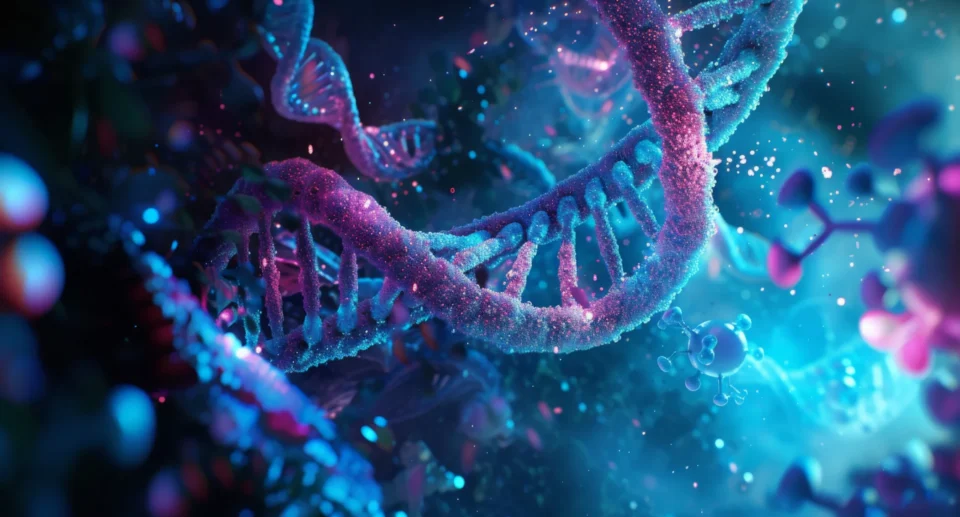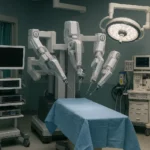mRNA Gene Therapy Advancements in Cancer & Genetic Diseases

Medical science is developing at a rapid rate, and perhaps one of the most thrilling developments is mRNA technology. Although most people learned about mRNA vaccines during the COVID-19 pandemic, the technology has much more to offer than infectious disease vaccines. Researchers are now employing it to create mRNA vaccine therapies for cancer, mRNA Gene Therapy Advancements, and in addition, novel methods for treating genetic diseases.
Here, we talk about how mRNA technology, cancer gene therapy, oncolytic virus therapy, and similar advancements are transforming medicine, and furthermore, why India is becoming a top destination for these new-age treatments.
Understanding mRNA Technology
1. What is mRNA?
mRNA (messenger RNA) is like a manual for our cells, instructing them to make certain proteins.
2. How does it assist?
Rather than relying on conventional medicines that bring in foreign substances, mRNA therapy allows the body to create its own defense systems.
3. mRNA in Vaccines:
The most popular application of mRNA is in vaccines, especially for COVID-19, assisting the immune system in combating the virus.
4. Beyond Vaccines:
Researchers are now using mRNA technology to attack cancer and genetic diseases, thereby bringing new hope to millions of people around the globe.
mRNA Gene Therapy in Cancer Treatment
Cancer is still one of the most difficult to cure, but mRNA and vaccine treatments for cancer are breaking ground. The idea is to teach the immune system to recognise and target cancer cells because a vaccine teaches the body to fight viruses.
Here is how an mRNA cancer vaccine is done:
- Scientists design an mRNA vaccine for cancer treatment with instructions for making particular cancer-specific proteins.
- When given to the patient, the body is told to recognise these proteins as harmful.
- The immune system kills the cancer cells, which shrink or disappear.
This customised approach is showing promise in clinical trials and could become a standard treatment soon.
The Role of Gene Therapy in Medicine
Gene therapy is yet another advanced technology that is transforming disease treatment. While mRNA technology provides cells with temporary blueprints, gene therapy permanently alters defective genes to treat diseases.
Certain types of cell and gene therapies are:
- CRISPR gene therapy: A targeted method of repairing defective genes.
- Oncolytic virus therapy: Utilizes virus-engineered viruses to destroy cancer cells without destroying normal cells.
Gene therapy for cancer is the most promising since it targets the disease at its root genetic cause, and long-term or even lifelong therapy can be provided.
Gene Therapy for Genetic Disorders
Genetic disorders are caused by inherited changes in genes. Traditional therapies try to treat symptoms, while gene therapy aims to correct the underlying genetic flaws.
Some of the key gene therapy successes are:
- Sickle cell gene therapy: A hopeful alternative that repairs the sickle cell disease-causing mutation, relieving pain and complications.
- Follistatin gene therapy: In the pipeline to treat muscle disorders.
By repairing faulty genes, these treatments could be the answer to long-term relief for rare genetic disorder patients.
The Science Behind mRNA and Gene Therapy Advancements
- Origin of mRNA and Gene Therapy:
mRNA therapy as well as gene therapy both act based on the modification of nucleic acid bases, the foundation of RNA and DNA.
- Role of Nucleic Acid Bases:
They hold information which guides how the cells would behave and respond.
- Role of Bioinformatics:
Scientists rely on bioinformatics in order to read and analyze extensive libraries of genetic information so they could come up with proper and effective treatments.
- Development of Medical Technology:
Without bioinformatics, mRNA technology development, CRISPR gene editing, and anticancer vaccines are not possible.
Strengths and Weaknesses of Gene Therapy and mRNA Technology
Every clinical advance has advantages and disadvantages that come with it.
Strengths
- Personalised therapy: Personalized based on individual patients.
- Long-term impact: Gene therapy has the potential to have long-term effects.
- Quick progress: mRNA vaccines can be created quickly.
- No invasion: Most treatments are not chemotherapeutic or surgical.
Limitations
- Expense: Gene therapy is expensive and not yet provided at large levels.
- Unknown long-term consequences: More studies are needed.
- Ethical issues: CRISPR gene therapy is controversial when it comes to human genetic modification.
Despite all these concerns, research is developing these therapies and making them available.
The Future of Gene Therapy and mRNA Technology
With mRNA technology, cancer gene therapy, and oncolytic virus therapy, the future of medicine is brighter. Moreover, scientists are coming up with more powerful sickle cell gene therapy, enhancing CRISPR gene therapy, and constructing better cancer vaccines.
The following could be developed in the future:
- More targeted mRNA vaccines for other types of cancer.
- Gene therapy is a daily prescription for genetic diseases.
- Widespread application of oncolytic virus therapy to treatment-refractory cancers.
With these innovations, diseases once considered to be untreatable could now potentially have effective, long-term solutions.
Why India Leads in mRNA Gene Therapy Advancements
India stands at the forefront of becoming a global leader in mRNA technology, gene therapy, and oncolytic virus therapy. Consequently, here is why international patients travel to India:
- World-Class Hospitals: Advanced technology in mRNA vaccine cancer research, cancer vaccine technology, and, moreover, cell and gene therapy.
- Exceedingly Skilled Physicians: Indian physicians are globally trained and experienced in CRISPR gene therapy, gene therapy for sickle cell disease, and, furthermore, follistatin gene therapy.
- Affordability of the Treatment: The cost of cancer gene therapy in India is reasonably low compared to Western countries.
- Quicker Treatment Process: Compared to other countries with long queues, India allows for quick and easy medical treatment.
- One-Stop Healthcare Services: From diagnosis to rehabilitation, India provides end-to-end care at one location.
Regimen Healthcare: Your Partner in mRNA Gene Therapy Advancements
Regimen Healthcare is a well-established medical tourism company that facilitates international patients to India’s best hospitals and experts. Here are reasons why you should hire our services:
- Specialist Consultation: We provide specialist consultation and treatment counseling.
- Top Specialists & Hospitals: We have partnered with internationally accredited hospitals and the best specialists in gene therapy for cancer, cancer vaccines and CRISPR gene therapy.
- Reasonable Cost of Treatment: India offers quality treatment at a reduced cost as compared to other countries in the West.
- Convenient Travel & Stay: We arrange visas, flights, transport and accommodations so that medical travel is convenient.
- Personalized Counseling: Our expert team offers you full end-to-end care, from the initial medical consultation to follow-up upon cure.
Take the First Step Toward Advanced Treatment
Suppose you or your family member requires state-of-the-art treatments like mRNA vaccine cancer treatment, cancer gene therapy or oncolytic virus therapy. In that case, India offers the latest medical technologies at an affordable cost.
Call Regimen Healthcare Today!
WhatsApp: +91-9310356465
Email: [email protected]
Website: www.regimenhealthcare.com
We can help you get the latest treatments from the best physicians, the best hospitals, and, moreover, convenient medical services. Your health is our greatest priority!
Frequently Asked Questions (FAQs)
1. Is mRNA therapy safe for cancer therapy?
Yes, mRNA therapy is being tried extensively in clinical trials and has consequently proved to be beneficial in the treatment of certain cancers.
2. In what way is gene therapy distinct from mRNA therapy?
mRNA therapy provides instructions to cells temporarily, while gene therapy provides permanent genetic alterations.
3. Is gene therapy costly?
Gene therapy is currently costly, though, with technology advancing and disseminating, costs will decrease.
4. Can genetic disease be cured by gene therapy?
Gene therapy can cure genetic diseases by fixing faulty genes, but so far, the process goes on.
5. How can I proceed with these treatments in India?
You can contact Regimen Healthcare, and we will directly guide you to the best hospitals and specialists for mRNA vaccine cancer treatment, CRISPR gene editing, and other advanced treatments.










1 Comment
Do you face obesity challenges together with diseases related to your life choices? Dr. Anupam Goel maintains his position as the Best Robotic bariatric surgeon in Panchkula because of his advanced skills in robotic and laparoscopic weight-loss procedures. Dr. Goel implements a patient-first method to perform more than 3000 successful bariatric treatments thus ensuring safe, effective weight loss that lasts over time. Max Hospital Mohali has become his practice base where he uses the latest techniques while delivering quick recovery time with minimized recovery time.